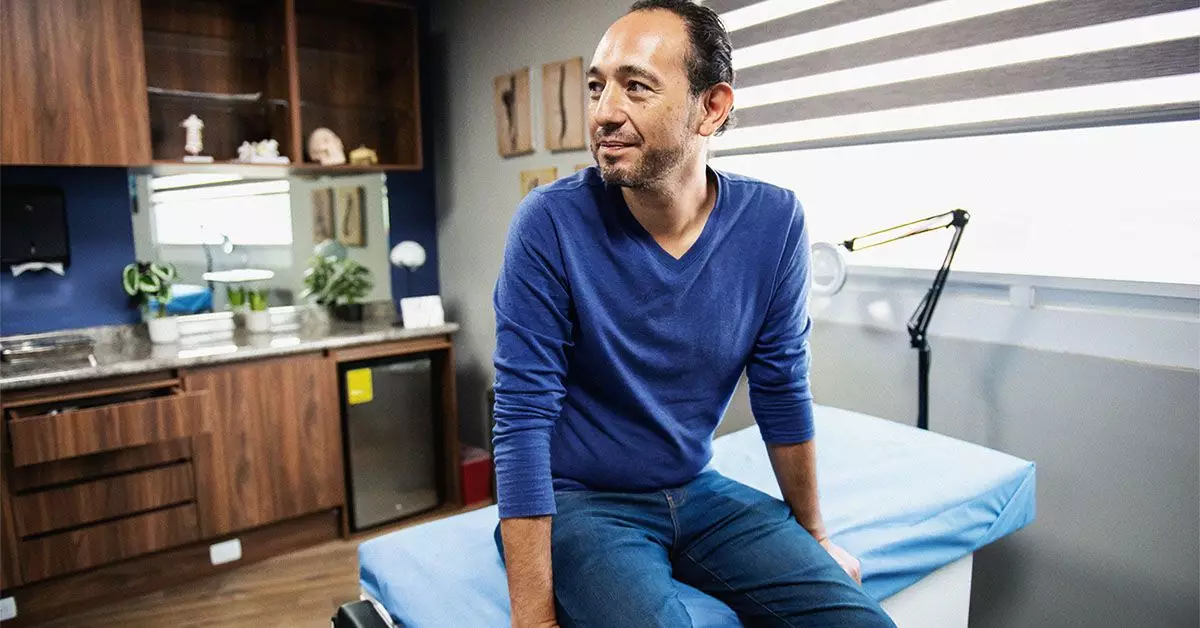Testosterone is a crucial hormone with a significant influence on male physiology. However, its relationship with prostate cancer is complex and multifaceted. Testosterone and its derivatives, particularly dihydrotestosterone (DHT), are known to promote the growth of prostate cells, including both benign and malignant types. This has raised concerns regarding testosterone replacement therapies (TRTs), especially for individuals diagnosed with low testosterone (hypogonadism). The question arises: does supplemental testosterone contribute to the risk of developing or propelling prostate cancer? Current research implies that while testosterone has a foundational role in the physiology of prostate tissue, its therapeutic administration does not undoubtedly heighten prostate cancer risks.
For those diagnosed with prostate cancer, hormone therapy—or androgen deprivation therapy (ADT)—serves as a pivotal treatment strategy. This approach aims to lower testosterone levels or inhibit its effects, thus restricting the fuel available for cancer cell proliferation. Doctors have various methods to achieve this goal. Firstly, medications known as luteinizing hormone-releasing hormone (LHRH) agonists and antagonists work by lowering testosterone production from the testes. Additionally, surgical options like orchiectomy—removal of the testicles—offer a more permanent solution.
Moreover, alternative medications, such as abiraterone and ketoconazole, block androgen synthesis from extratesticular sources. Lastly, anti-androgens—drugs that stop testosterone from actively promoting cell growth by blocking receptor interactions—are utilized as part of a comprehensive treatment strategy. Understanding these various modalities of hormone therapy underscores its importance in managing prostate cancer.
The timing and combination of hormone therapy with other treatment modalities can greatly affect the outcomes for prostate cancer patients. Typical clinical practice involves administering hormone therapy prior to or in conjunction with radiation therapies to reduce tumor size and mitigate the chances of recurrence. Hormone therapy might also be indicated for patients whose cancer has advanced beyond the surgical stage or for those who cannot undergo conventional treatments.
Interestingly, the implications of hormone therapy extend beyond just tumor suppression. It has been suggested that an early initiation of treatment may result in improved long-term outcomes for patients. However, the medical community remains divided on this front; some experts advocate for a conservative approach, suggesting that delaying hormone therapy may reduce long-term side effects and avoid potential resistance of cancer cells to treatment.
With the advent of TRT for patients suffering from hypogonadism, medical professionals continuously debate the implications of such treatment on prostate health. Emerging data is beginning to shine a light on the misconception that testosterone therapy invariably leads to a greater risk of prostate cancer. Although it is established that high androgen levels can exacerbate existing cancer, current research suggests that testosterone replacement may not instigate malignancy in previously healthy individuals nor lead to a recurrence of cancer in survivors.
This distinction is important for cancer survivors who may experience diminished testosterone levels as an aftereffect of treatments like chemotherapy or hormone therapy. Balancing the benefits of testosterone therapy against the perceived cancer risks is crucial for optimal patient care; it can significantly enhance quality of life, vitality, and physical well-being.
For patients presenting with low-risk prostate cancer, the approach often involves active surveillance, allowing for vigilant observation of the cancer’s status without immediate aggressive intervention. This strategy may help patients avoid the side effects often linked with hormone therapy and other invasive treatments. Should the cancer exhibit signs of progression, doctors may recommend implementing hormone therapy or other treatment protocols accordingly.
Although testosterone plays a role in the development of prostate cancer, a nuanced understanding of its interaction with cancer pathology can inform more effective treatment strategies. Hormone therapy remains a vital tool in combating prostate cancer, and the growing body of research suggests that careful implementation of testosterone therapy can provide a beneficial balance for patients, mitigating health issues without disproportionately increasing the risk for cancer recurrence. Balancing testosterone levels and ensuring proper medical oversight is essential for maximizing patient outcomes in the context of prostate cancer management.


Leave a Reply